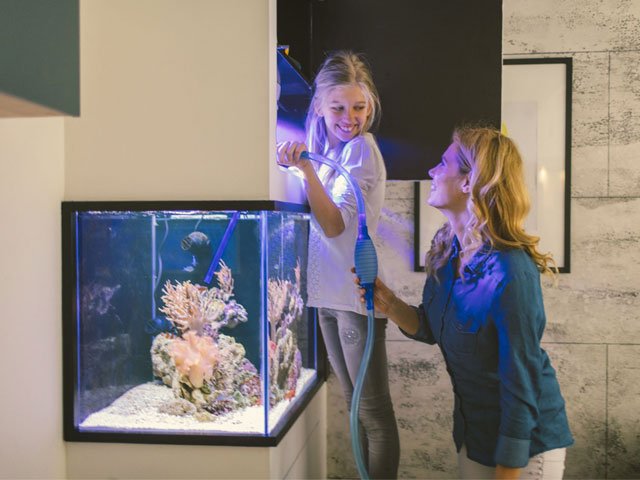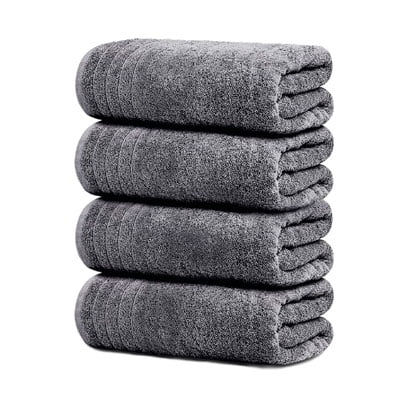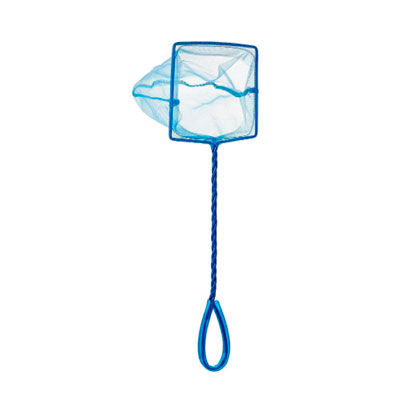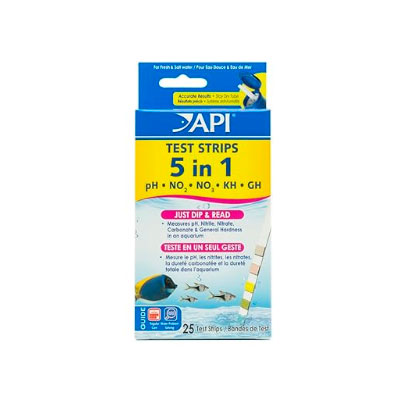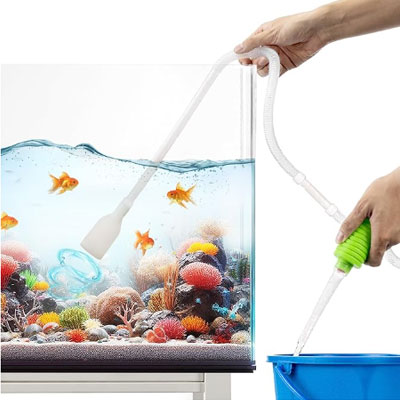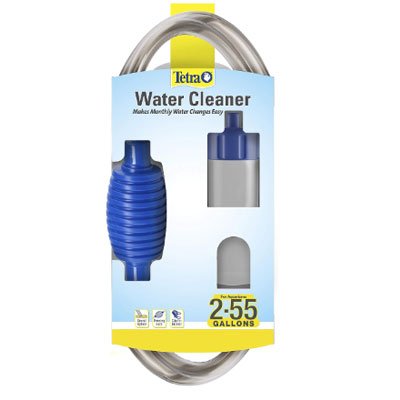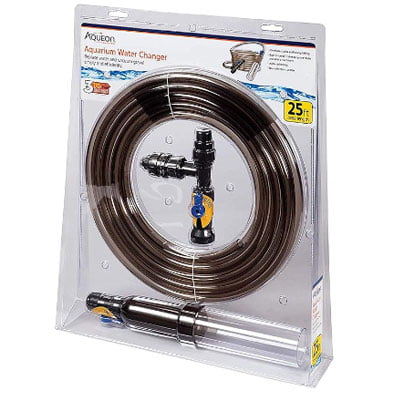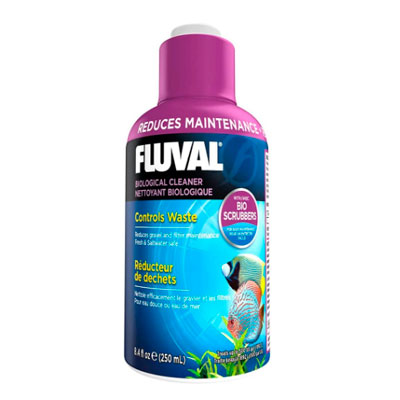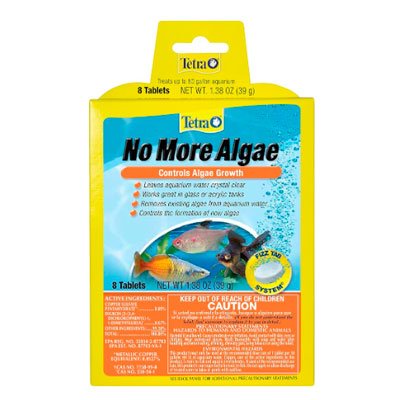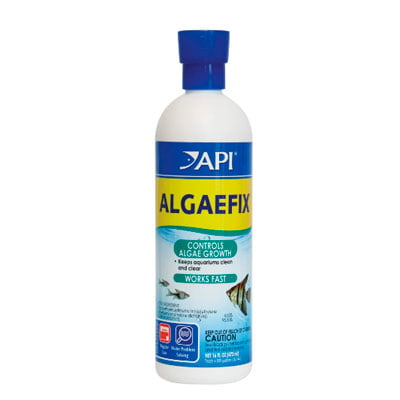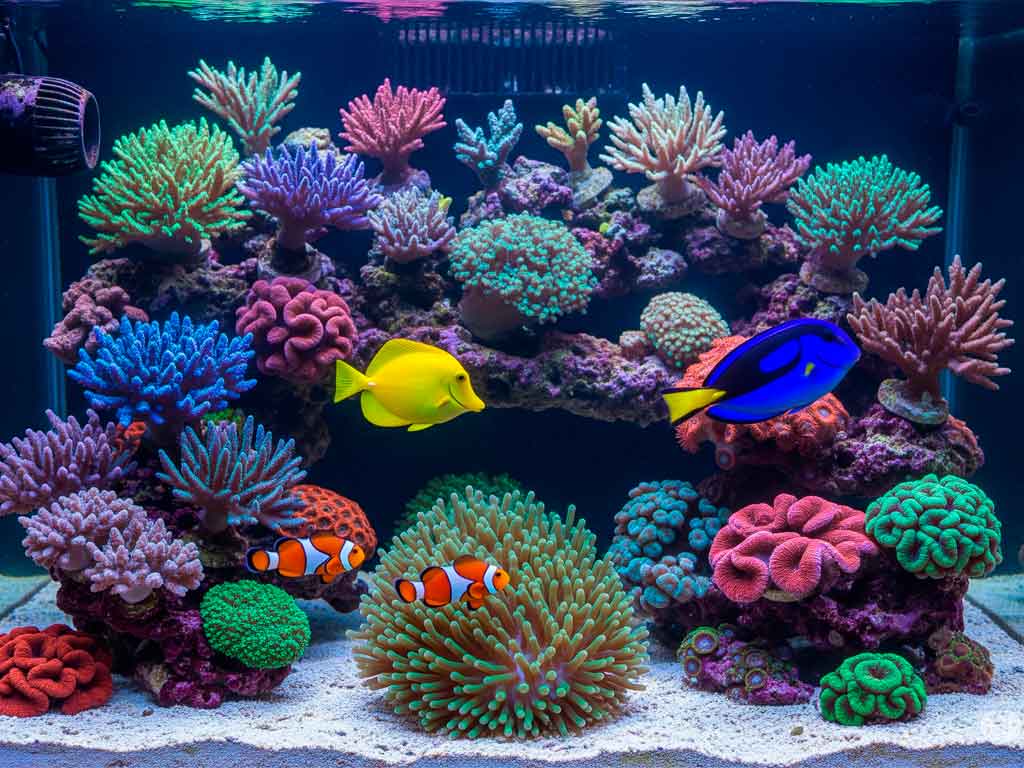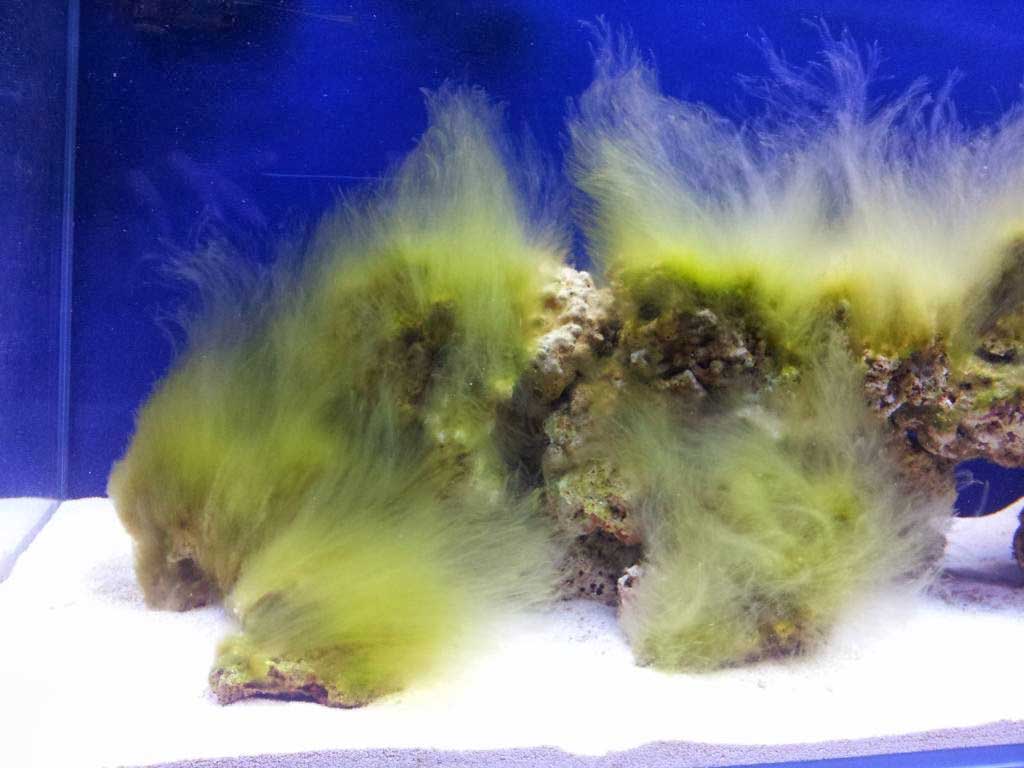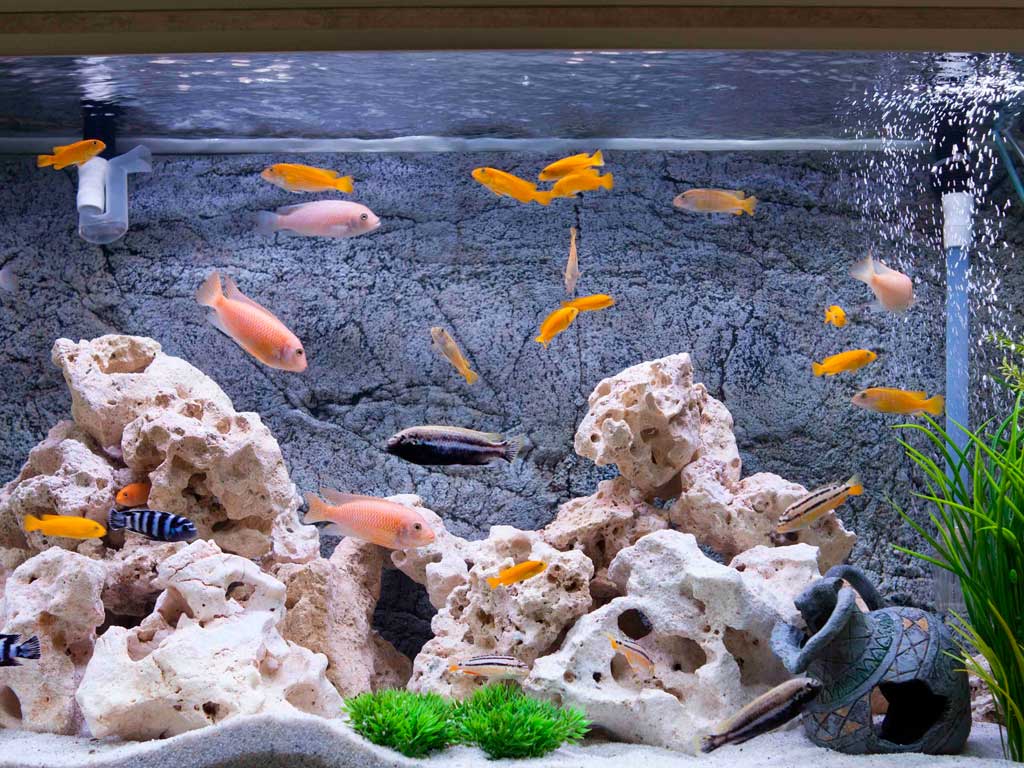Proper aquarium maintenance is crucial to ensure the health and well-being of fish and other aquatic organisms. Below is a comprehensive and detailed guide on how to keep your aquarium in perfect condition.
Maintaining an aquarium involves more than just feeding the fish. It requires a series of routine and periodic tasks that ensure a clean and healthy environment.
Necessary Equipment for Maintenance
For effective maintenance, certain basic equipment is necessary:
- Water test kits: To monitor parameters such as pH, ammonia, nitrites, and nitrates.
- Fish net: For handling fish safely.
- Siphon: For cleaning the substrate and changing the water.
- Towels: Very useful to prevent splashes and keep the area around the aquarium dry.
Daily Routine
- Visual Inspection: Observe the fish for signs of illness or stress.
- Feeding: Feed the fish the right amount of food. Avoid overfeeding, as it can contaminate the water.
Weekly Routine
- Partial Water Change: Change between 10% and 20% of the aquarium water. This helps to remove accumulated toxins and refresh the environment. Avoid completely emptying the aquarium water, as this would eliminate all the beneficial bacteria that help maintain the aquarium’s balance.
- Filter Cleaning (if required): Rinse the filter in aquarium water to avoid removing beneficial bacteria. Perform this task in the yard or bathroom, where it is easy to clean.
- Glass Cleaning: Use a sponge or magnetic cleaner to keep the glass free of algae.
Monthly Routine
- Water Testing: Conduct complete tests for pH, ammonia, nitrites, and nitrates. Adjust as necessary.
- Equipment Check: Ensure the heater, lights, and filter are functioning correctly. Replace worn parts.
Substrate Cleaning
The substrate can accumulate food remnants and waste. Use a siphon to vacuum the substrate during water changes. This helps prevent the buildup of toxins.
Algae Control
Algae can be a common problem in aquariums. Keep the aquarium away from direct sunlight and control artificial lighting. You can introduce algae-eating fish or invertebrates to help keep them under control.
Fish Health
- Regular Observation: Identify signs of illness such as spots, color changes, or unusual behavior.
- Specific Care: Some fish require specific care, such as particular temperatures or types of food.
Aquarium Plants
Natural plants not only beautify the aquarium but also help maintain water quality. Regularly prune the plants and provide them with the necessary nutrients for their growth and health.
Additional Tips
- Avoid Overcrowding: Do not add too many fish to a small space.
- Never change more than 40% of the aquarium water at a time.
- Species Compatibility: Research the compatibility of species before adding them to the aquarium.
- Patience and Consistency: Maintaining an aquarium requires time and dedication. Keep a consistent routine to avoid major problems.
- Never completely empty the aquarium to clean it. This causes unnecessary stress to the fish and will disturb the biological balance of the aquarium.
- Use Towels: Place towels around the aquarium during maintenance to prevent splashes and keep the area dry.
- NEVER use soap or detergent in or around your aquarium.
- Cleaning in the Yard or Bathroom: Wash filters and filtering materials in suitable places such as the yard or bathroom to avoid dirtying the aquarium area.
- When cleaning the internal glass of your aquarium, avoid picking up gravel stones as this can scratch it.
- Rinse Filter Material with Aquarium Water: To preserve the beneficial bacteria living in the filter material, always rinse it using the water extracted from the aquarium during partial changes.
Maintaining an aquarium can seem like a daunting task, but with the right routine and necessary equipment, you can maintain a healthy and beautiful environment for your fish. By following these tips, you will ensure that your aquarium is a thriving haven for aquatic life.

